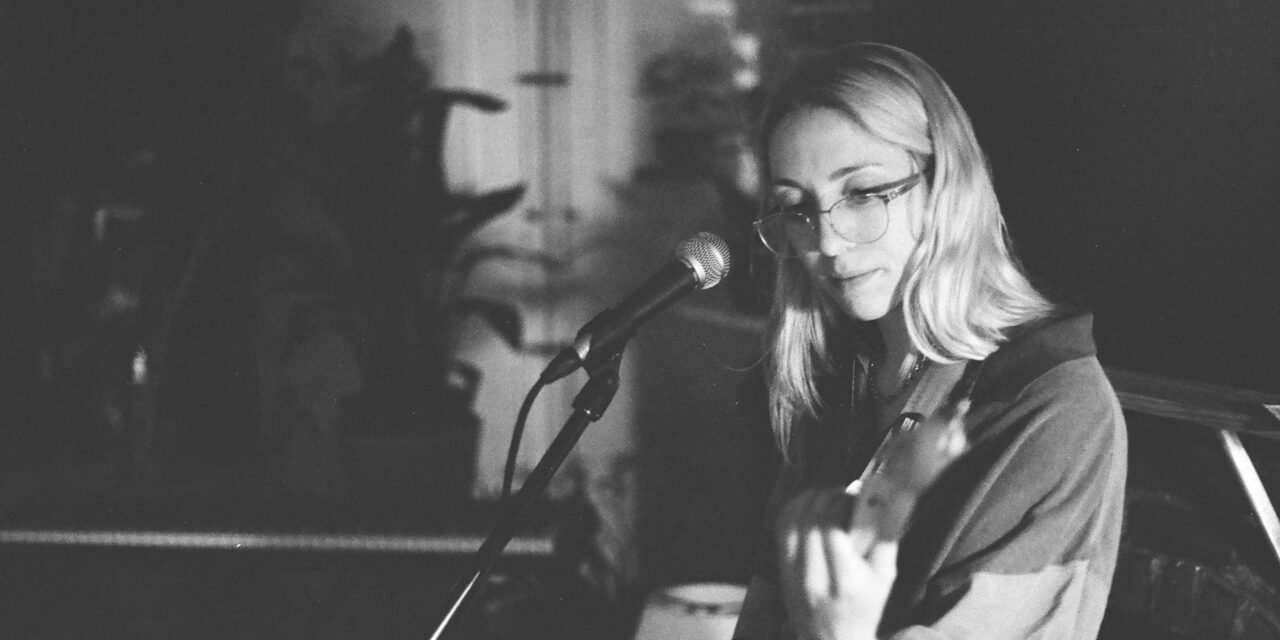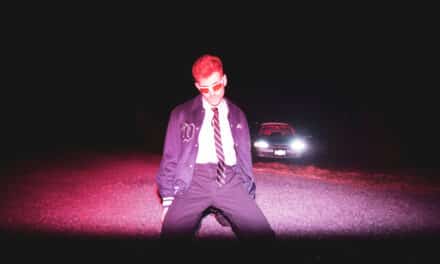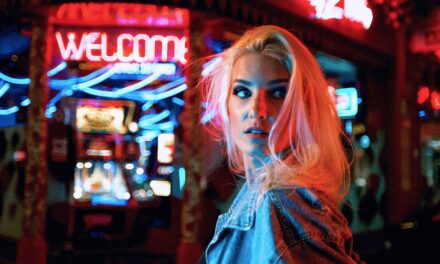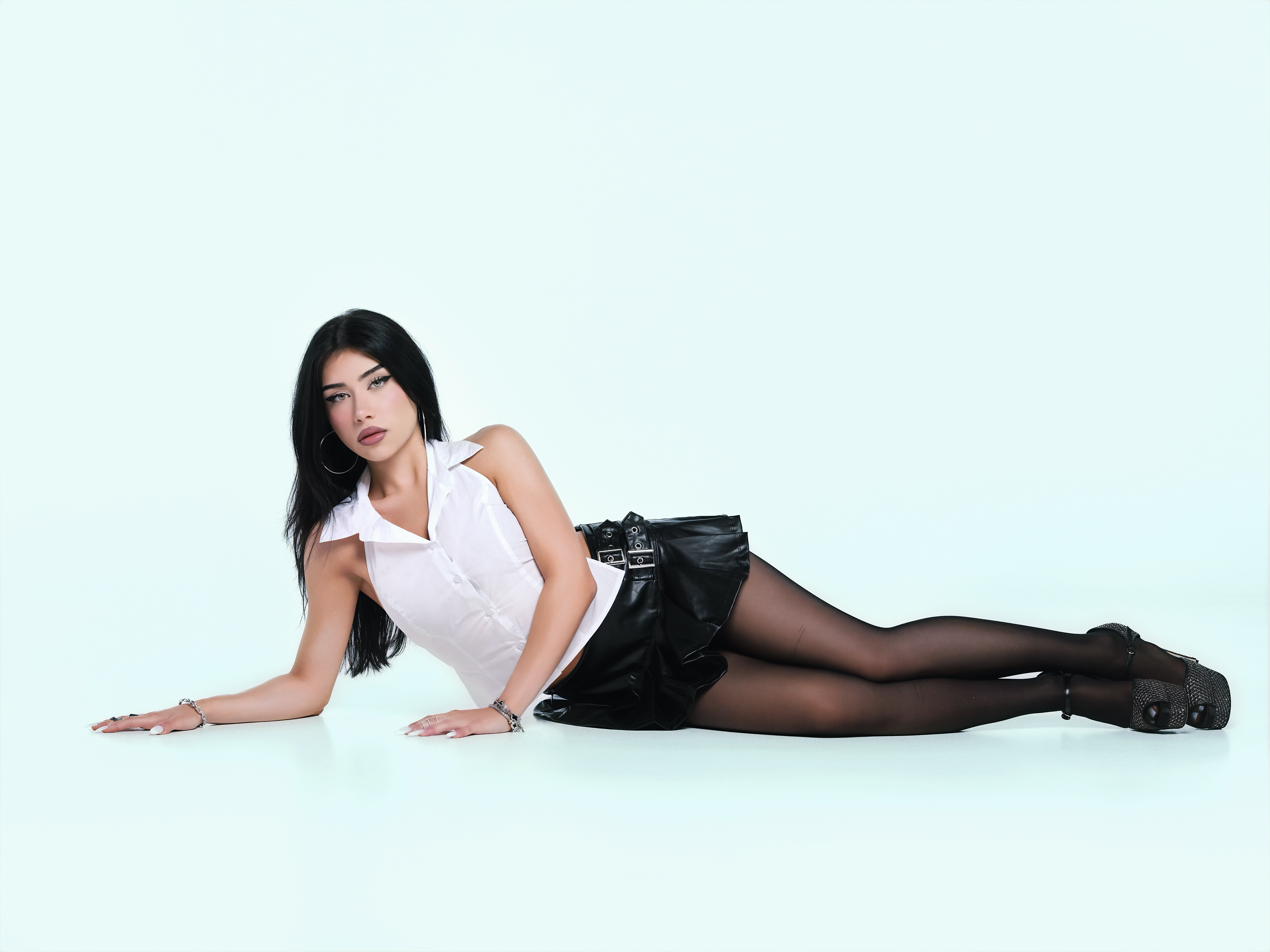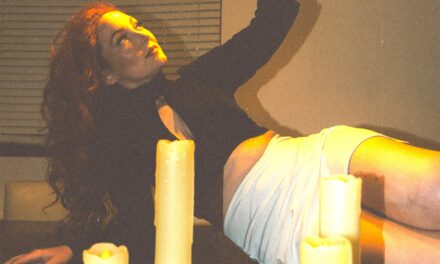Photo Cred: Justin Buschardt
The second release from Brooklyn-based indie artist Work Wife (solo project of singer/songwriter/multi-instrumentalist Meredith Lampe), “Plastic Windows” is a catchy lo-fi indie pop tune diving into a far darker matter: the sensations and images that rise up at the beginning of a panic attack. The idea came to songwriter/engineer Lampe when she was walking through a neighborhood of Seattle called Madison Valley.
Tell us about the genesis of your project. How did you get to where you are now?
I play in this other band called Colatura that I joined a couple of years ago, and even though that project already has a couple of songwriters I couldn’t help but start writing stuff for them–it was kind of my first real foray into actual songwriting. The more I wrote, the more I started to figure out what my voice was as a songwriter and started to realize that some of the songs wouldn’t work for the band, and that the way I wanted to produce them was a totally different sound. So during quarantine I just kept writing music and learning a bunch about production and trying stuff out until I felt like I had what would become the first few Work Wife singles. A good friend of mine, Natalie Lew, is a genius design and branding person, and having her help me decide on a name and design album artwork and all of the non-music stuff that goes along with starting a project made that process feel a lot less scary. I haven’t put together a live band yet– it’s been a totally solo endeavor in that regard, which has made me feel proud in a way, to be doing it on my own. I’m really excited to build a band around the project at some point in the future, and it always feels good to have friends from the scene offer to be a part of the project, but I just want it to be the right timing.
What does music and being an artist mean to you?
On music, to me music is the most emotional art form, and the easiest way to feel connected to other people. There’s something really fascinating about groups of people doing things in sync, whether that’s everyone dancing at a concert or the members of an orchestra starting a piece completely in time with each other. I still always get goosebumps at concerts where everyone is shouting the lyrics in unison and you feel that collective, like, “we have each other’s back” feeling. There’s nothing like it.
On being an artist, depends on the day, honestly, but usually it correlates to whatever part of the writing and producing process I’m in. Songwriting is for dealing with emotional trauma and processing your thoughts, producing and refining a song is when I feel the most like an ‘artist’, because you’re really carefully piecing together textures and tones and melodies and tapping into that deep creative part of your brain. And then playing live is for trying to inspire people and for feeling the release of finally getting to watch people enjoy your music. So I guess songwriting is for coping, producing is for exploring and being adventurous, and performing is the release, the reward.
What are some sources of inspiration for your lyrics and storytelling?
I write mostly about relationships and mental health, which are so intertwined for me. You start out writing a song about loneliness and it turns into a song about the relationship you have with your mom, you know? I try to write songs that describe brief moments in life that all add up to a more general feeling or statement. I think one way to do this is to use the verses to tell brief, illustrative stories and then generalize them in the chorus to be more clear about the point you’re trying to get across. It’s not always like that, but sometimes having a framing like that to get started writing helps me.
Who is an artist that you look up to more than others today?
Jay Som. I admire that she writes and produces herself, I’m SO into the sounds that she uses on her guitars and her production is so good — there are a lot more people doing this now, but that lo-fi drum machine that introduces Tenderness that opens up in the chorus to the full kit really blew me away the first time I heard it. I was reading her interview in this book called Mirror Sound recently and loved what she said about letting the gear define the sound and not trying to fight it — I think Kevin Parker says something similar, like, always start a new song with a new sound to get inspired by. If you re-use the same sounds you’ll write the same song.
All time favorite record?
I swear I give a different answer to this question every time someone asks it, but i’m gonna say Malibu by Anderson Paak.
Tell us about your latest release and how it came about
Plastic Windows, the next Work Wife single, is about panic attacks and the underlying feeling anxious people have that feels like you’re always only a few moments away from spiraling. When I’m writing a song, I’m always trying to find the perfect visual metaphor to explain an abstract feeling I’m having, and I’d been trying to deal with this panic disorder thing during the pandemic and spent a lot of days just pacing around this neighborhood in Seattle, where I’m from. I came across this house under construction that had some of those plastic sheets over the windows, and the wind was pushing against the sheet and causing it to bend inward, and since the tape didn’t go all the way around the edges of the sheet some of the wind got through. And it just clicked that that was a great way to visualize trying to keep your anxiety at bay and having some success but never being able to completely seal it off.
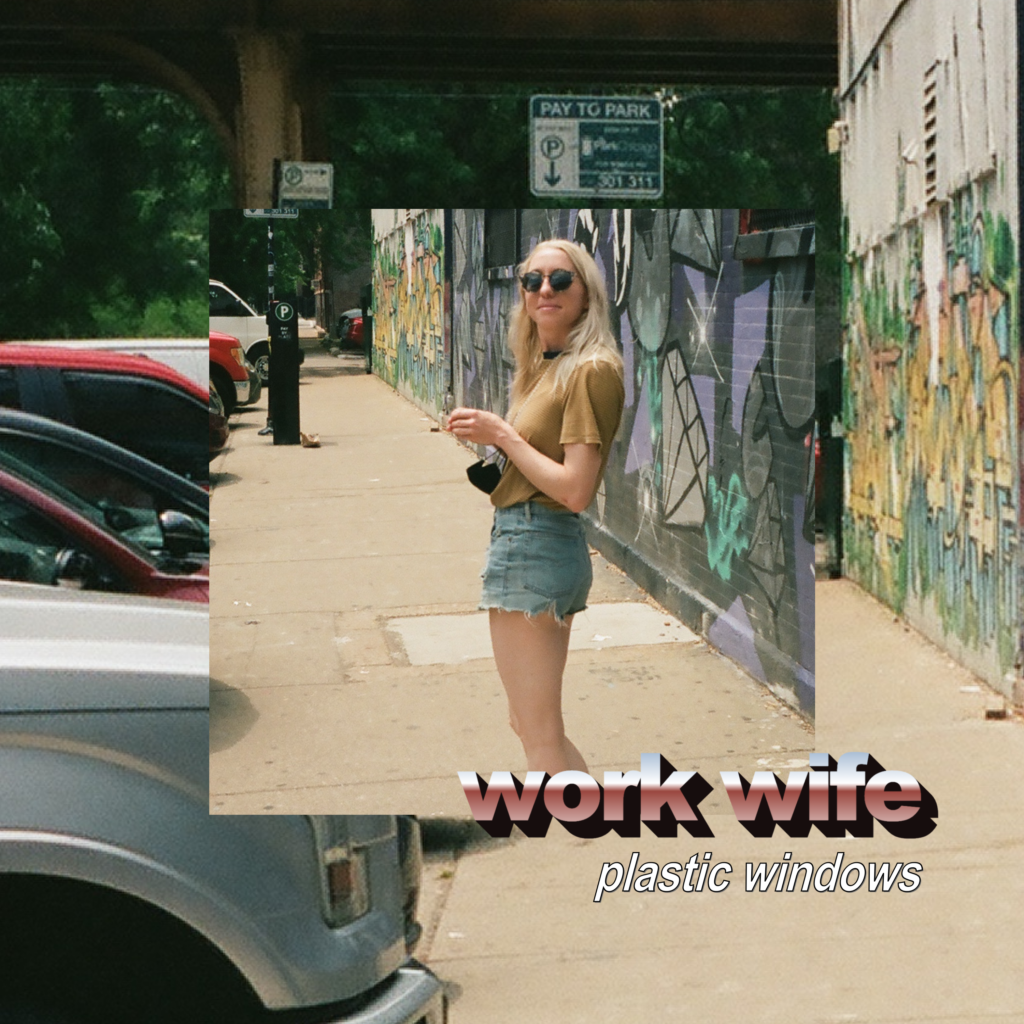
Sonically this single is a lot different than the last WW single, Thought We Met Before. I’ve always liked seeing an artist’s journey as they discover their sound and change and mature, so I’m trying to let each single be sort of an exploration of something new.
You seem to be fusing several musical genres. What inspires your sound?
I usually use ‘bedroom pop’ as a the most relevant genre for this project, but within bedroom pop there’s some really cool stuff and some not so cool stuff…I’m trying to find the overlap between that genre and dream pop. I think it would lean more on the synth pop side if I didn’t love playing guitar so much, so I always end up wanting to throw a bunch of guitars on each track. And also, the scene that I hang out in here in Brooklyn has a lot of heavier bands, just like any local scene. I never want to get too too far from something that could be played out around here on bills with these bands that I respect so much. Like, the project would sound super different if I lived in LA. I think by virtue of going out to local shows every night you really start to write in a way that fits with your scene whether you realize it or not.
What are some things you do to deal with anxiety and creative blocks?
I love to learn, so if I’m feeling super blocked I’ll try to learn a new guitar technique or find some weird sound I can get my synth to make so that I can feel accomplished in a session even if I haven’t written anything. And sometimes learning that new technique inspires you in a way you didn’t expect so you end up writing something anyway. But once I’ve learned something and felt like I sort of “did something” that day, it takes the pressure off the rest of the session.
Where do you see yourself in 5 years?
I’d love to have found the community of the other Work Wife – esque projects elsewhere in the country and in other countries, be touring regularly and have really gotten into the groove of writing and producing and maybe even producing other artists. I also dream of opening a venue, but that’s probably more of a 10 year situation!
Your style is very original and elaborate. How do you take care of your aesthetics?
It’s wild how important this is these days — we can’t just run around wearing all black and being like “I look sick, I look like a rockstar”. A lot of what inspires me is just the people on the streets of New York, which is one of the reasons that nobody knows what to wear coming out of the pandemic, because everyone is like “what’s going on with streetwear??”. Being from the west coast influences me a bit, I used to kind of dress like a skater when i was younger, lots of Vans and big t shirts and stuff, and I’m trying to reign that in a little and figure out how to channel that west coast energy in a more put-together East coast kind of way.
What was the most daunting moment in your career so far?
Probably the first time I went into the studio by myself to record vocals for Thought We Met Before. Right before we went in I realized that I was in charge and supposed to be calling the shots and kind of directing everything, deciding when we had good takes, etc etc. so that was a little intense for a moment. But its just like anything else, where you pretend like you know what you’re doing and then you eventually either figure it out or forget that you don’t know what you’re doing.
What is the best advice you’ve ever gotten?
Don’t burn out! There are so many things you have to do all the time when you’re an artist today beyond just writing the songs, and its easy to spend all your time doing that and totally run yourself into the ground, but I’m trying to remember to make time to relax and be with family and friends. I think I’ll be making music for a long long time, so trying to treat it like a marathon and not a sprint, you know.
Where do you think the next game changer will be in the music industry and entertainment scene?
I think music is defined by the channel that its listened to on, and right now music is in this weird place where people are writing stuff optimized for streaming and super short-form plays like TikTok. I think eventually people will all boycott algorithmic social media in a more serious way now that we know it can be pretty bad for everyone’s mental health and attention. I think there will be a new form of more ethical social media that we’ll adopt that’s similar to the OG Facebook News Feed, that was just a chronological account of events that wasn’t ranked to optimize for grabbing your attention. And I think that will really change music and let the pendulum swing back toward a world where the hook doesn’t have to show up in the first 10 seconds of the song.

